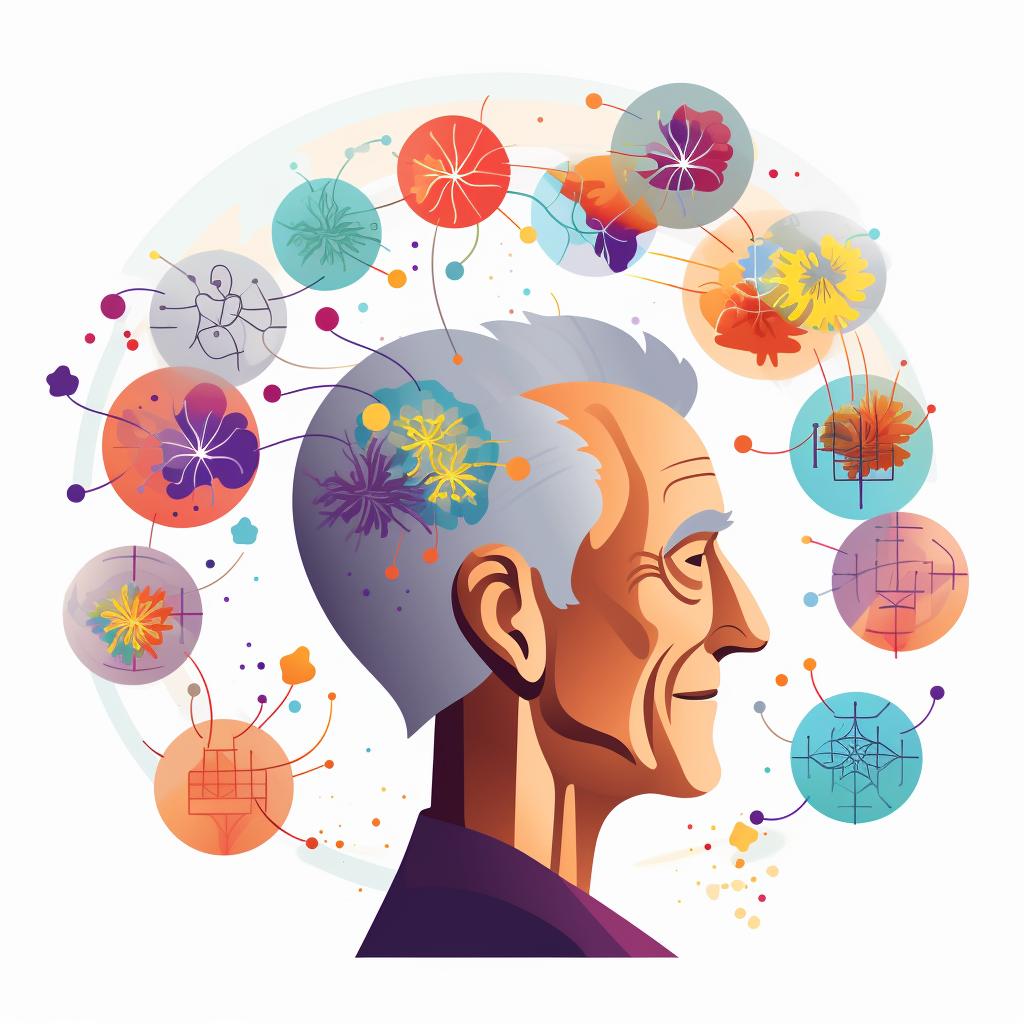Loraine Mitchell is a seasoned professional in the nursing field, specializing in geriatric care for over two decades. Her extensive experience and deep comprehension of dementia make her a reliable guide for families embarking on this challenging journey. Loraine's writings are a blend of her expert knowledge and a warm, empathetic touch, aimed at providing practical advice and support to those dealing with dementia.
Alzheimer's disease is a form of dementia, not a preceding condition. It's essential to understand that dementia is not a disease itself, but rather a term referring to a group of symptoms that impair social and intellectual abilities. Alzheimer's disease is the most common type of dementia, accounting for 60-80% of all dementia cases.
Let's Unravel the Mystery: Understanding Dementia and Alzheimer's 🧩
Dementia is an overarching term that includes several conditions, one of which is Alzheimer's disease. Other types of dementia include vascular dementia, and Lewy body dementia. Each type has its own set of symptoms and progression patterns, although there is significant overlap in many cases.
Comparison Between Alzheimer's Disease, Vascular Dementia, and Lewy Body Dementia
To better understand the differences between Alzheimer's disease, vascular dementia, and Lewy body dementia, let's take a look at the following comparison table:
| Dementia Type | Primary Symptoms | Progression | Causes |
|---|---|---|---|
| Alzheimer's Disease | Memory loss, difficulty thinking and understanding, confusion in the evening hours, difficulty with spatial and visual understanding | Slow and progressive | Genetic factors, lifestyle, and environmental factors |
| Vascular Dementia | Problems with speed of thinking, concentration, and communication, depression and anxiety, stroke-like symptoms, including muscle weakness or paralysis | Stepwise progression | Conditions that block or reduce blood flow to the brain, often after a stroke or a series of mini-strokes |
| Lewy Body Dementia | Visual hallucinations, movement disorders, poor regulation of body functions, cognitive problems | Slow and progressive | Presence of Lewy bodies (protein deposits) in nerve cells |
The table above provides a clear differentiation between Alzheimer's disease, vascular dementia, and Lewy body dementia. Understanding these differences is crucial in diagnosing and managing these conditions.
Understanding the difference between Alzheimer's and dementia can be confusing since many people use the terms interchangeably. However, distinguishing between them is vital for diagnosis, treatment, and caregiving.
Spotting the Signs: Recognizing Dementia in Alzheimer's Patients 👀
Alzheimer's disease is characterized by specific symptoms, which are often initially mistaken for normal aging. These include memory loss that disrupts daily life, difficulty completing familiar tasks, confusion with time or place, and changes in mood or personality.
Understanding Alzheimer's Disease
This quiz will test your knowledge about the signs and symptoms of Alzheimer's disease.
Learn more about 🧠 Understanding Alzheimer's Disease: Signs and Symptoms Quiz 📝 or discover other Dementia Care Tips quizzes.
It's crucial to note that Alzheimer's is a progressive disease, meaning symptoms gradually worsen over time. The stages of Alzheimer's dementia range from mild (early stage), to moderate (middle stage), and severe (late stage).
Taking Control: Strategies for Managing Alzheimer's Disease 🕹️
While there is currently no cure for Alzheimer's disease, there are strategies and treatments available to help manage its symptoms.
While there is currently no cure for Alzheimer's disease, there are strategies and treatments available to help manage its symptoms. Here is a step-by-step guide on how to care for a loved one with Alzheimer's disease.
Understanding Alzheimer's and dementia difference is the first step towards providing the best possible care for a loved one. By following these steps, you can ensure that your loved one receives the care and support they need.
Understanding Alzheimer's and dementia difference is the first step towards providing the best possible care for a loved one affected by these conditions. For more information on caregiving for dementia patients, you can explore our caregiving guide.
The Battle of the Brain: Vascular Dementia vs Alzheimer's 🧠
Vascular dementia, the second most common type of dementia, is caused by conditions that block or reduce blood flow to the brain, depriving brain cells of vital oxygen and nutrients. Alzheimer's disease, on the other hand, is thought to be caused by the abnormal buildup of proteins in and around brain cells.
Comparing Causes, Symptoms, and Progression: Alzheimer's Disease vs Vascular Dementia
Although both Alzheimer's disease and vascular dementia are forms of dementia, they have different causes and may affect the brain in dissimilar ways.
Decoding Dementia: Alzheimer's Disease vs Lewy Body Dementia 🔍
Another form of dementia is Lewy body dementia, which is characterized by protein deposits in nerve cells that interrupt brain function. It shares many symptoms with Alzheimer's but also includes symptoms like visual hallucinations and motor symptoms similar to those in Parkinson's disease.
Comparison Between Alzheimer's Disease and Lewy Body Dementia
To better understand the differences between Alzheimer's disease and Lewy body dementia, let's take a look at the following comparison table:
| Criteria | Alzheimer's Disease | Lewy Body Dementia |
|---|---|---|
| Primary Symptoms | Memory loss, difficulty thinking and problem-solving, confusion | Memory loss, visual hallucinations, motor symptoms similar to Parkinson's disease |
| Cause | Plaques and tangles in the brain | Protein deposits in nerve cells |
| Progression | Gradual and slow | Can be rapid or slow, varies from person to person |
| Treatment | Cholinesterase inhibitors, Memantine | Cholinesterase inhibitors, medications for Parkinson's disease symptoms |
| Prevalence | Most common type of dementia | Second most common type of dementia |
As you can see, while both Alzheimer's disease and Lewy body dementia share some common symptoms, they also have distinctive features that set them apart. Understanding these differences can help in early diagnosis and appropriate treatment.






















